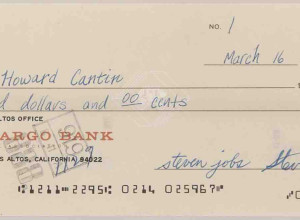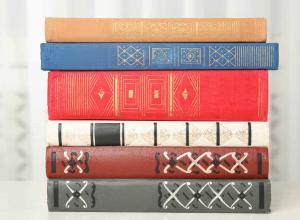Dickens Collection Sparked by "Christmas Carol" Heads to Worcester Polytechnic Institute
When Daniel Ryan was just a freshman at a Connecticut boarding school, his English teacher gave him a copy of A Christmas Carol as he headed home for the holidays. It was a gift that ignited not only an interest in Charles Dickens, but a desire to collect. Sixty-five years later, having assembled an extraordinary collection of Dickens' books, manuscripts, and original art, Ryan is paying it forward by donating it to Worcester Polytechnic Institute (WPI) in Worcester, Massachusetts. The collection complements WPI's Robert D. Fellman Dickens Collection.
Joel J. Brattin, professor of literature at WPI and noted Dickens scholar, said the gift, made jointly by Daniel Ryan and his wife, Alice, will be a transformative addition to WPI's existing collection. For example, Ryan's collection contains a significant amount of original art by the sixteen artists who illustrated Dickens' first editions, and even some of the steel plates used to print those illustrations. "Secondly," he added, "there are manuscripts, particularly letters written by Dickens to his family and friends, and a complete collection of letters written by all of those original illustrators. This is a collection that would probably be all but impossible to assemble today. It includes one letter from a recently discovered cache of letters that Dickens wrote pertaining to Urania Cottage, a home for the rehabilitation of former prostitutes that Dickens helped establish. Most extraordinary, the collection has two letters written to Dickens. These are extremely rare, since Dickens burned his collection of letters in 1860."
After high school, Ryan attended Yale University and then spent his career in the oil industry. All the while, he was adding to his collection. When, a few years ago, he acquired an unusual document signed by all of Charles Dickens' living children, his research led him to WPI, where he learned about the Fellman collection, which had been donated to the school in 1995. Fellman, like Ryan, had been inspired to collect after a fateful encounter with The Posthumous Papers of the Pickwick Club as a teen.
When the Ryans visited WPI, they were struck not only by the Fellman collection, but by the way the university has incorporated the use of this special collection into its curriculum. Brattin teaches two seminars on Dickens' works, during which his students take a hands-on approach to the rare material. In his fall 2018 course on A Christmas Carol, students examined a first edition (pictured above) while discussing the book's history and reception. Brattin noted that Ryan was "glad to see that WPI is a hands-on kind of place, and that our students will have many opportunities to interact with and use the collection in classes, in project work, and, frankly, in ways that we probably can't even begin to envision right now." There's an opportunity to serve an ever wider audience, which the university has already begun to do by digitizing Dickens' novels in their original, serial editions through Project Boz.
The wealth of material that will housed at WPI thanks to the Ryan and Fellman collections opens up the possibility of other kinds of innovative educational, research, and outreach efforts, said Arthur Carlson, assistant director of archives and special collections in WPI's George Gordon Library. "With the works themselves, the letters and manuscripts, the art, and other materials, there will be opportunities for deeper and more meaningful engagement in which students and scholars can explore not just the novels, but the social and personal contexts in which they were created, the community of people Dickens worked with, and the impact he had on so many people. It's just fascinating to think about the number of facets that will be available through the study of this remarkable collection of material."
A special exhibit with associated programming at WPI's Gordon Library is planned to celebrate the Ryans' gift in 2020, the 150th anniversary of Dickens' death in 1870.















